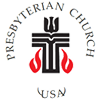It was the first Sunday of the new year, Epiphany Sunday — and after having a week off of meeting (on the last Sunday of 2018) — we gathered round the table. Chatting and laughing as we figured out who was sitting where, we opened in prayer & then checked-in a bit about the optional homework assignment from the last 2 weeks. Praying for our community — for the in-breaking of hope, peace, joy, and love.
The reflection seemed to be that it was hard. Praying in generalities was difficult. Which in some ways might invite us to use the general as starting point for specifics — to use the idea of how in Advent we name that true hope, peace, joy, and love are truly found in Christ & at Christmas we celebrate how Christ broke into our “ordinary” world and lives in an undeniable way to make manifest hope, peace, joy, and love in a new way! — to guide our prayers; to think what would God breaking into SVE — look like today — what would the hope in Christ, the peace in Christ, the joy in Christ, the love in Christ, look like in specific ways — that we could prayerfully name?
The conversation also lead us to a space to consider community & love & unity across difference. Conversations that are not always easy. Realities that can hurt. Arguably the idea of expectation in relationship was broached — how do we be authentic to what the Holy Spirit has spoken to us, while respecting how God in infinite wisdom has given ALL of us both the gift of grace and the freedom to choose to accept the gift, or not? These are places where we (each and every one of us) can still grow — inviting God to lead us to love with Christ’s heart, to comfort with the tenderness and strength of the Holy Spirit, to see and hear each other (especially when we don’t agree with each other — on the important things!) — with God’s eyes and ears and heart. Maybe that’s part of the key to praying specifically for hope, peace, joy, and love to break into our communities — to be intentionally praying for God to have God’s way in our very own beings — especially when it is hard; especially when we don’t agree; especially when we’d prefer that God would stay quiet about how Christ came for all on purpose!
And we talked a bit more here, before turning to the scripture selection for the day, Pslam46. The conversation naturally moved toward Psalm 46:10a,
Be still, and know that I am God.
We asked, what is stillness? Stillness of mind? Stillness of body? Other? Some mentioned that really when praying, all else ceases and they focus on God alone. Others mentioned in the time when it seems they could (should) be still, and they are physically their mind races. Others asked if people were in the habit of working on being still, working on stopping, working on listening — fully listening to God? There was talk of how our harried, distracted minds/lives are our nature thus making stillness challenging…but there was mention too of how God might — in the invitation to be still — be reminding us all that our true nature is not harried and distracted but fully present with God in the beauty of creation and a loving relationship with the Creator of all. And so we pondered these 8 powerful and elusive words. (Though, I don’t know quite how still we were in the conversation!)
And thanks be to God — the homework comes directly from this verse we had been focused on. All gathered round the table were given an index card & invited to write these 8 words, “Be still, and know that I am God.” And the homework is this:
- Each day this week — at least once a day — look at this verse.
- And consider & seriously answer (for you), what would a whole year committed to knowing & living this (“Be still & know that I am God) — look & feel like?
Y’all I cannot wait to hear these answers and to see (& feel) the movement of the Holy Spirit though this week with taking the time daily to look at — Be STILL, and know that I AM GOD. Be encouraged as you experience the week.
In Christ ~
Rev. Sabrina Slater
